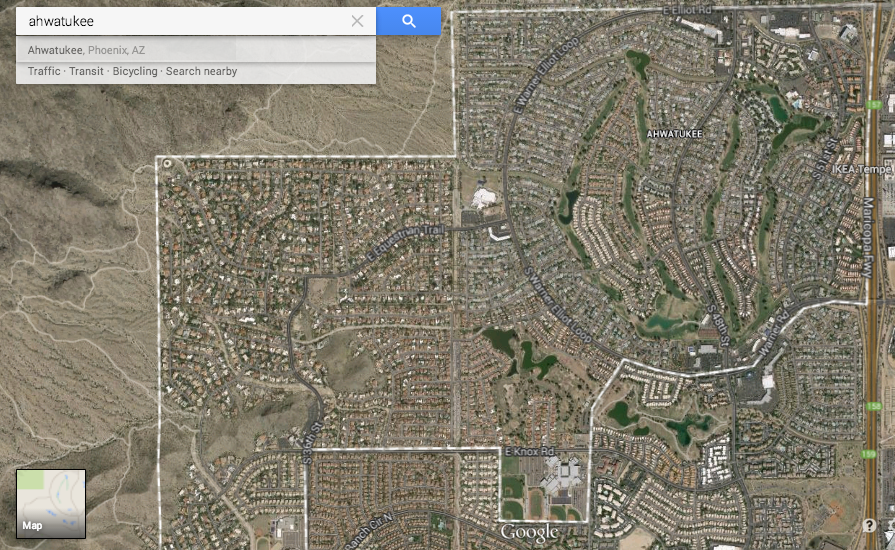
I grew up in an Arizona suburban town called Ahwatukee. Many people refer to my hometown as the “cul-de-sac of Phoenix” and they’re not entirely incorrect. As a young girl, all my sports, clubs and extracurricular activities were nearby, and occurred peacefully with children of my same race. This was just a demographic reality of what (shamefully) some call “All-White-Tukee.” Here’s a picture of Ahwatukee that shows none of the residents, just the landscape:

…Okay Emily, what’s your point in mentioning “All-White-Tukee”?
I mention this to illustrate the importance of teaching the history of American race relations. Students who learn of conflicts involving race can understand broader themes and develop open mindsets about race equality. I slightly agree with a quote from a reflective TIME article about learning from past conflict: “These problems won’t be solved simply by the recognition of historic grievances.” However, I believe it is still crucial to inform and inspire action toward change.
I learned about race relations in my school history classes. Although I never truly understood the extremity of these issues in America, I was at least aware that the whole country did not reflect my Ahwatukee community. There are certainly many communities, now spotlighted as result of Ferguson, dealing with racial divide issues I never experienced in Ahwatukee.
With teaching historic grievances comes understanding for the future. Instilling awareness in children can prevent similar race discrepancies as we’ve seen – especially in violent cases such as the shootings of Michael Brown and Trayvon Martin – which are only just a few cases – sensationalized by the media.
Beyond just education and awareness, we must spread truth about these types of situations so we can progress. As President Obama states, ” the truth will be what eventually brings peace to Ferguson and allows the country to move beyond this bout of racial tensions.” We must discuss the truth of these discrepancies – and work not to repeat them.
Post Edited by: Armen Sargsyan

Emily,
I wanted to comment on your piece because, as you know, I too spent some of my adolescence in Ahwatukee. I spent 3.5 years of my high school experience in the lovely neighborhood and reside there today. What Ahwtukee lacks in ethnic differentiation it makes up for in cookie-cutter homes. Isn’t that just it though? We build entire societies, neighborhoods based on what the demographic would want, and thus a pattern begins. You take houses with cul-de-sacs, close proximity to good schools perhaps near some grocery stores and a Moron church and voila, you’ve pigeonholed a neighborhood.
Then again, more and more places are diversifying. Take Brooklyn for instance. Neighborhood used to be entirely inhabited by perhaps one or two different ethnic groups. Today, many of the Brooklyn neighborhoods are diversifying and incorporating multiple races and ethnicities all within the same square mile. I’ll take you sometime.
– Amelia
Hi Emily,
Thank you for sharing your experience of growing up in Ahwatukee. I do agree that education and awareness are critical aspects of understanding the underpinnings of the racial inequities that continue to plague individuals, communities, and our country as a whole. Theses pieces (education and awareness) are segments of the foundation that build the full framework presenting a whole picture of race in America. In order to dismantle the inequities, and re-build the way, we as individuals, communities, and a nation address the issue of race (whether you believe it is a social construct or not) is through advocacy and action. Without out this critical transition from thought to action no real changes will ever be made outside of an individual’s mind.
Dave